- Monday 09:00 - 16:00
- Tuesday 09:00 - 16:00
- Wednesday 09:00 - 16:00
- Thursday 09:00 - 16:00
- Friday 09:00 - 16:00
- Saturday BY APPOINTMENT
- Sunday CLOSED
We’ve been talking about stone for years. In fact, decades! And we often get asked the same questions. So, we’ve compiled our top 10 most commonly asked questions about limestone. And here they are…
What is limestone most commonly used for?
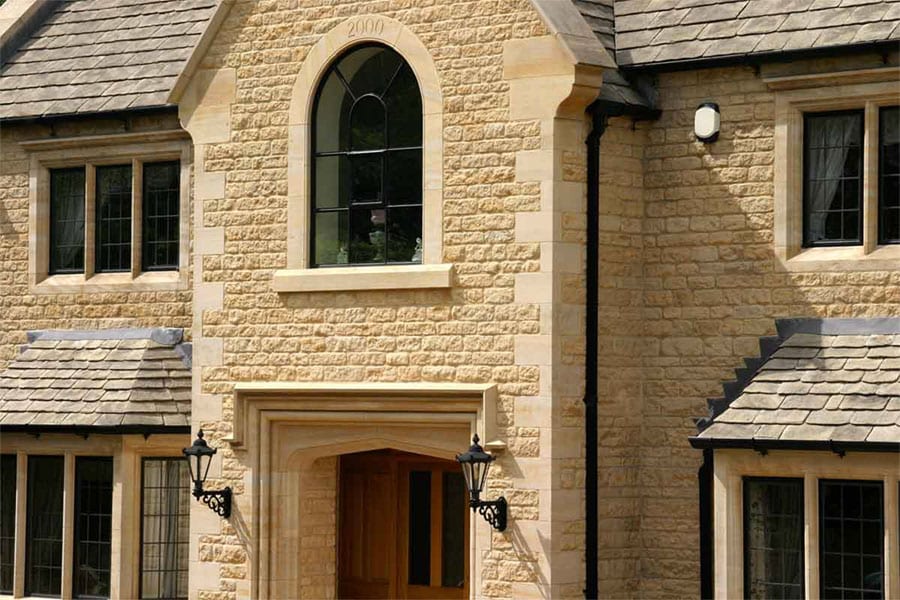
Limestone is most often used as a building material. It’s durability and good looks mean it is just as popular for use on new building developments as it is on restoration projects too. Take a look at some examples of our stunning Lincolnshire limestone in situ.
Limestone can be used both externally and internally and is commonly used as flooring too. In a ground format, limestone is used as an essential component of concrete, and its versatility extends to aggregate too. Aggregate, containing limestone, is often used to form the base of our road networks and large built structures.
Stamford Stone, an additional family-owned business, owns and quarries natural Lincolnshire stone and is the exclusive global supplier of Clipsham limestone.
Is limestone flooring compatible with underfloor heating?
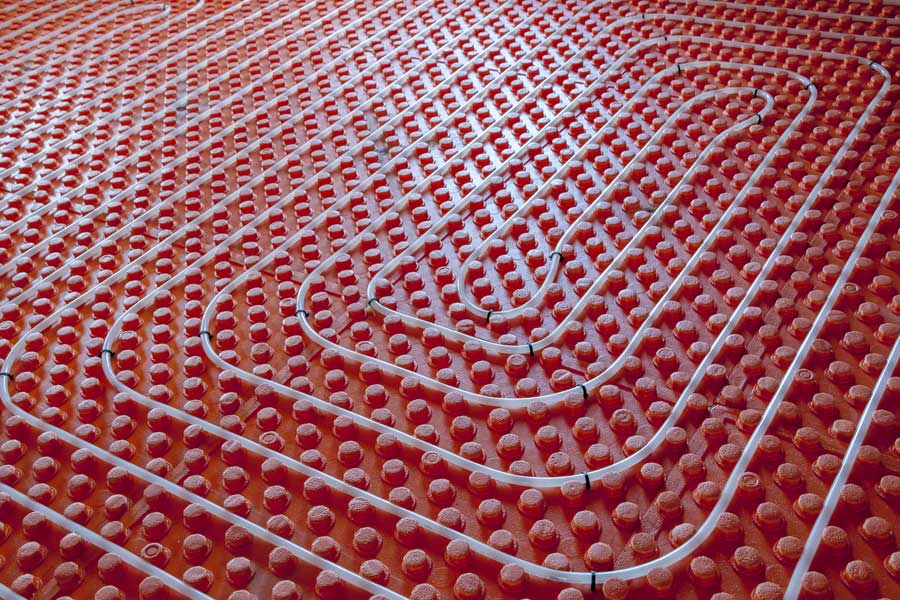
Natural limestone flooring is a fantastic conductor of heat and so works very well with underfloor heating. Around 90% of the floors we supply are used with underfloor heating systems. If you plan to install this combination, you should make sure you are following all the manufacturers guidelines to ensure a successful and robust fit.
How often do you need to reseal limestone flooring?
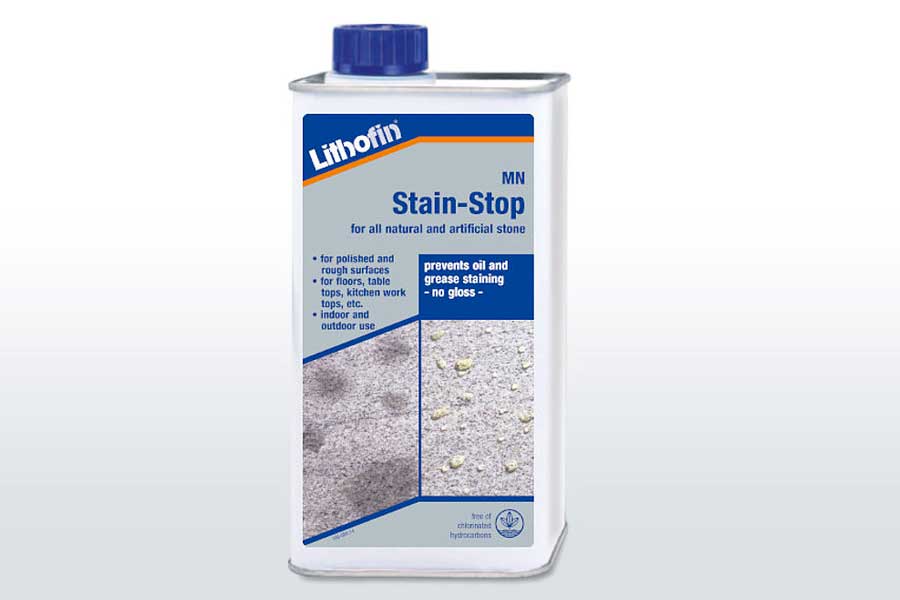
If sealed correctly and maintained according to the general guidelines, your floor should not need resealing for around three years or more, depending on traffic and the products used.
How do you clean limestone tiles?
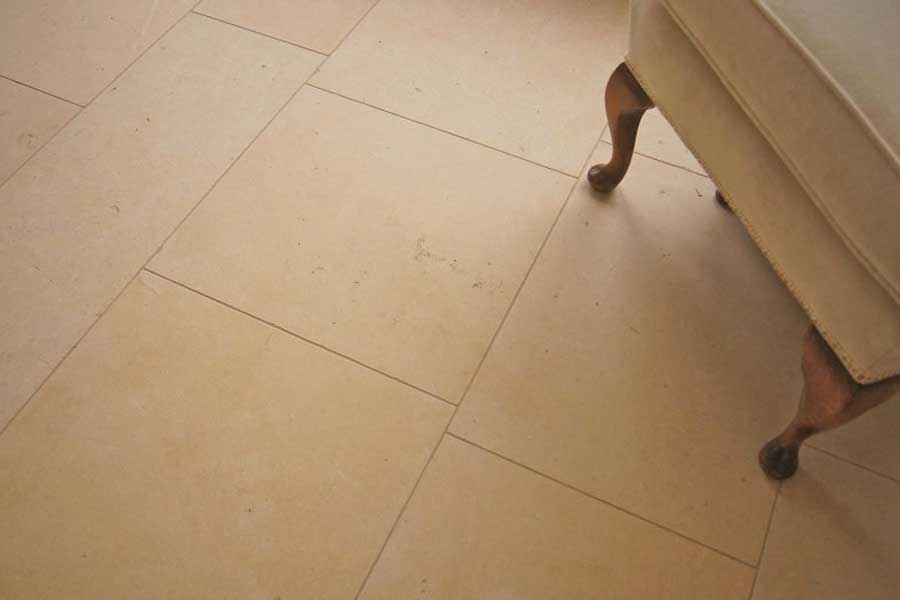
Ongoing maintenance of limestone flooring is low providing it has been correctly sealed. Simply sweep and then mop the tiles with a PH neutral detergent. There are specialist cleaning products that will help with spot or stubborn stains. Don’t leave spills to soak in as these will become more difficult to remove over time. Sealing your tiles will also protect the grout and keep it looking cleaner for longer too.
Can I use limestone in my bathroom?
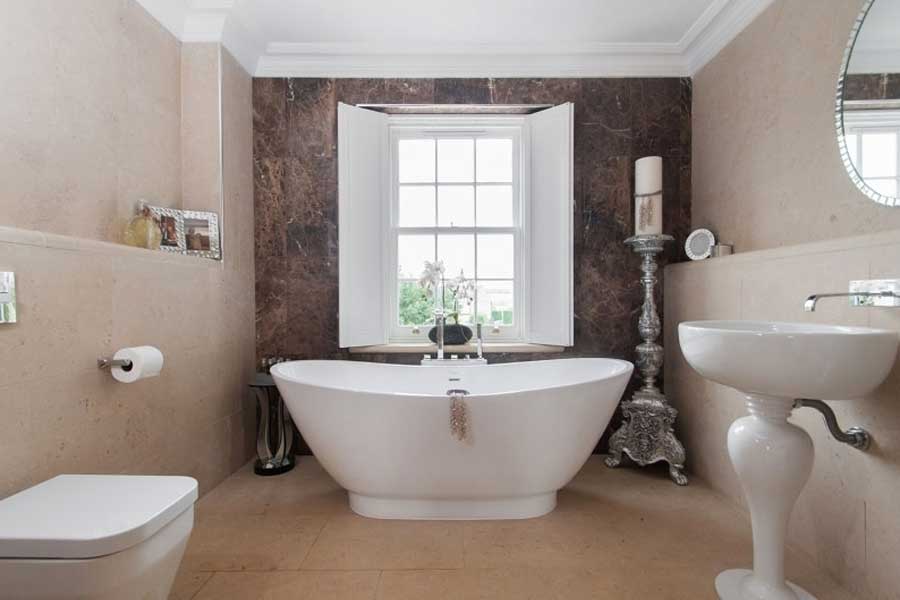
Yes, you can use stone in your bathroom. However, be aware that the surface of your chosen stone will need to be sealed with a good quality sealant that will last and minimise the maintenance required. Often marble (or hard, polishable limestone) is the preferred choice for many top quality bathrooms. The key to a long-lasting tiled bathroom solution is to ensure that the walls and floor are fully waterproofed or tanked before the tiles are installed. Take a look at our gallery of bathrooms and wetrooms.
Does the colour of natural stone floor tiles vary?
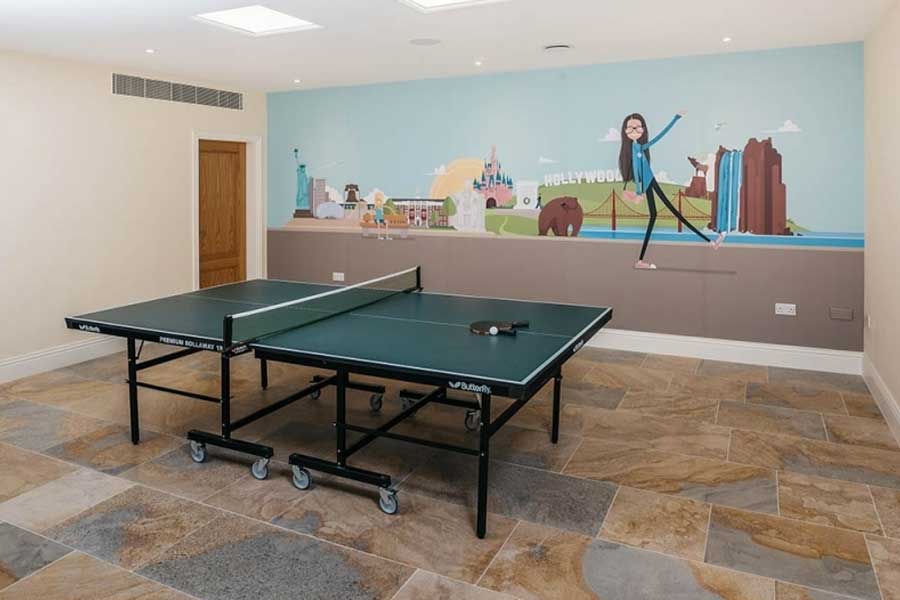
Each piece of stone is unique and so will vary in colour. Make sure your tiles are clean and dry before fitting so you can see their true colour before fixing. Having a colour variation in your tiling will add depth to the area and give a more natural look.
When ordering, how much wastage should I allow for?
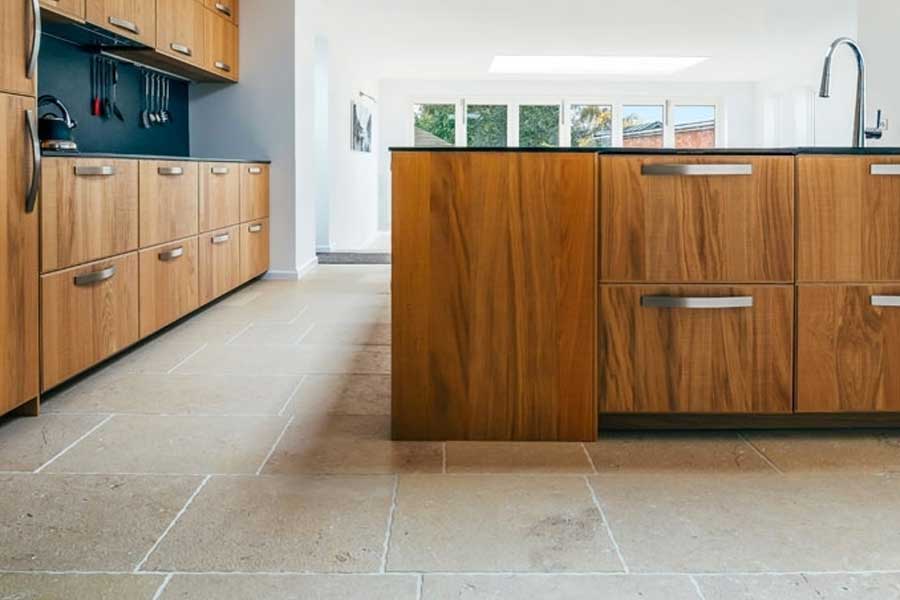
An additional 10% of the area/areas should be sufficient, but do feel free to ask us for advice by calling 01780 740970 and telling us more about your project.
Do you need a specialist stonemason to lay limestone flooring?
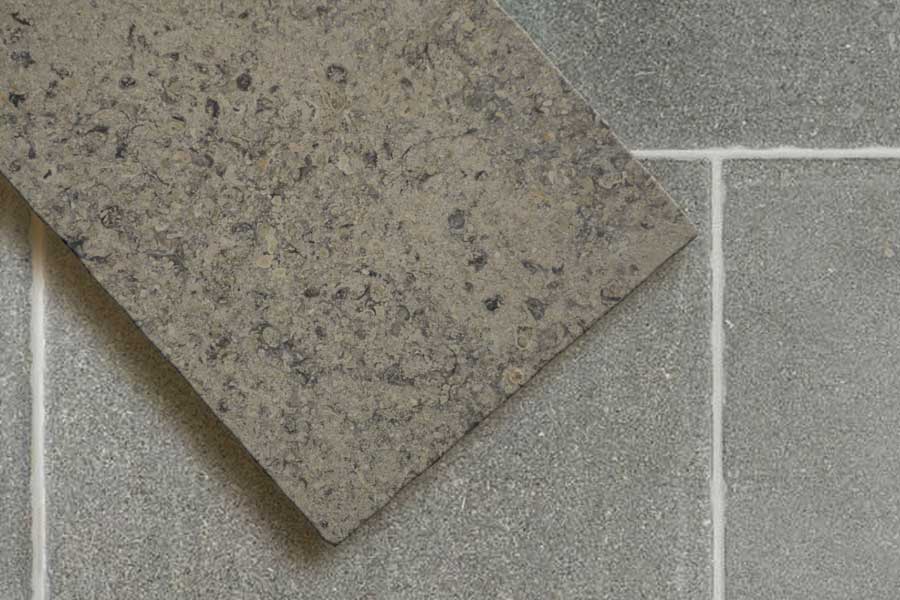
We would always recommend using an experienced or specialist fixer when installing natural stone tiles. Each type of natural stone, whether it be limestone, slate, sandstone, travertine or marble, has its own characteristics and structure and is best handled by someone with experience of working with these materials.
Are limestone floors cold? slippery?
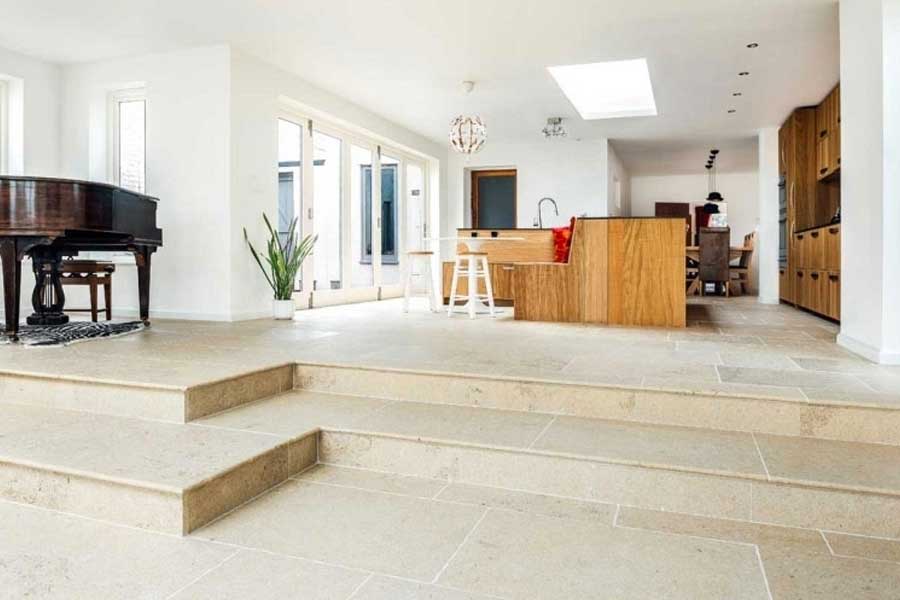
Limestone floors can be slippery, but their slipperiness will be greatly affected by the type of finish applied to the tiles; highly polished limestone will, of course, be much more of a slip hazard than the rougher surface alternatives. Think carefully about the use and placement of your stone floor tiles and choose a finish to best suit your requirements of that space.
Is limestone a green solution to flooring?
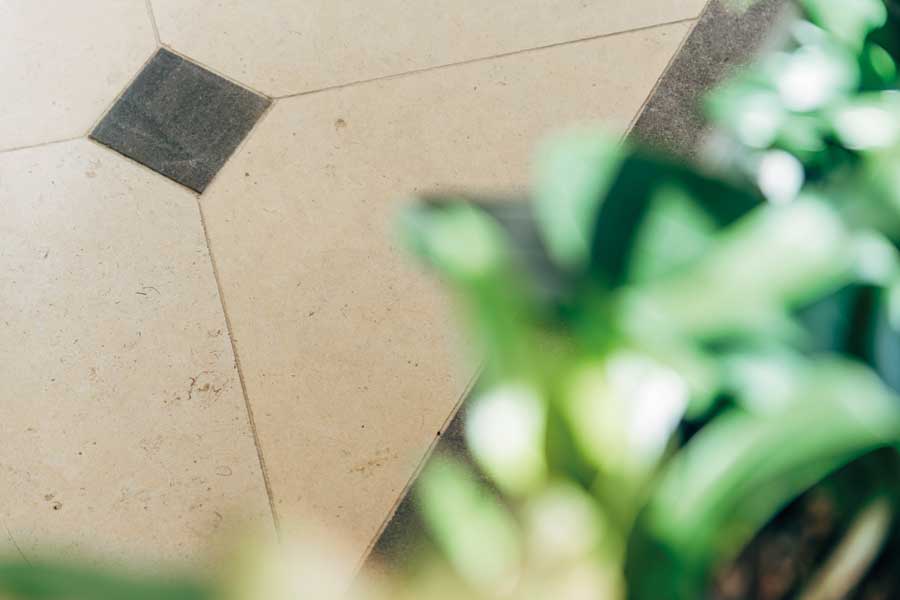
No material is more sustainable than natural stone. Compared to all alternative flooring, natural stone tiles cause a significantly lower impact on the environment in their production and installation.
Stamford Stone is committed to environmentally friendly policies and sustainable development. Read more about our sustainability and environmental commitments.
If you have any other questions about natural limestone, or you would like to order a sample of stone products, or a brochure, please get in touch on 01780 740 970, or fill in our contact form and we’ll get straight back to you.